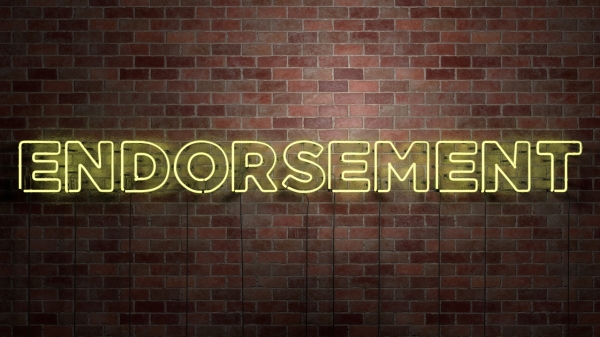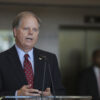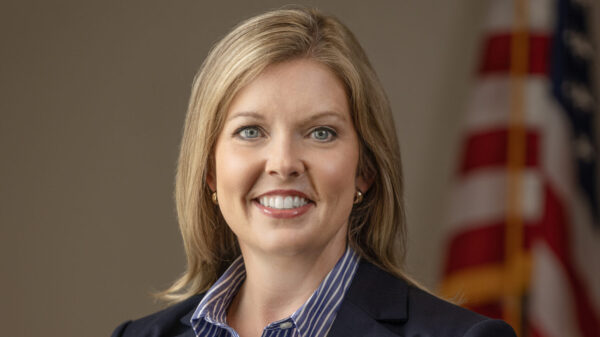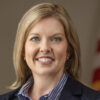By Chip Brownlee
Alabama Political Reporter
MONTGOMERY—During the 2016 General Election, 37 states and the District of Columbia allowed for some type of early voting, giving voters the opportunity to cast their votes up to a month before Election Day arrived on Nov. 9.
House Minority Leader Craig Ford, D-Gadsden, wants Alabama to become an Early Vote state.
Ford has prefiled two bills that would allow two different forms of early voting in the State. The bills will be debated in the upcoming Regular Legislative Session, which will begin on Feb. 7 in Montgomery. Long lines and record turnout prompted Ford to file the bills, Ford said in an interview with APR.
“I think early voting will ease up a lot of the burden on Election Day, from long lines, the frustrated voters, the frustrated county workers and the frustrated poll watchers,” Ford said.
One of Ford’s bills, House Bill 30, would require each of Alabama’s 67 counties to provide at least one location for early voting that would be open for four to six days before Election Day including Saturday and Sunday.
House Bill 31, Ford’s other bill, would require at least five days of early voting in every county during the two weeks leading up to Election Day for at least 10 hours every day. Each county’s probate judge would set the hours and days under HB31.
Ford said the early voting will be more convenient for workers and those who have prior engagements on Election Day. It would also help small business who have a lot of people who need to take off to go vote, Ford said.
“It will increase voter participation,” Ford said. “The most American thing to do is vote. It helps build unity and patriotism, and I think think it is the right thing to do.”
Not everyone is on the same page, though. Secretary of State John Merrill, who is responsible for administering elections in Alabama, said early voting would cost the State more money with no comparable payoff.
“We have early voting,” Merrill told APR. “It’s called absentee voting. We don’t need another form of early voting other than the voting that we have today.”
Alabama is one of 13 states that does not have any form of no-excuse early voting. Three of Alabama’s four neighbors, Georgia, Florida and Tennessee, have implemented early voting with start dates during that last election ranging from Oct. 17 in Georgia to Oct. 29 in Florida.
Several other states, including Washington and Colorado, have fully implemented mail-in voting for all voters. Last year, some states began voting as early as September. In 2012, more than a third of votes were cast early, and that number grew in 2016.
Ford’s HB30 would require every county to allow early voting from 9 a.m. to 5 p.m. at their County Courthouses or other designated locations on weekdays and the Saturday leading up to Election Day. On Sunday, voters could visit the location to vote from 1 to 5 p.m.
Once at the location, voting procedure would work as usual. Voters must still show their ID to vote, must be registered and must be a legal resident of the county in which they are trying to vote.
“It’s just going to make it easier,” Ford said. “I don’t understand why we try to make it difficult for people to vote. If there are long lines, as there have been for the past six election cycles, then let’s come up with some common sense form of governing. We’re supposed to represent the people.”
Ford expects early voting in the state would increase in-person voter turnout and cut down on absentee voting, which he believes serves as the main source of voter fraud.
Requiring early voting in counties across the State would cost the state too much money, according to Merrill, and would put a strain on county staffers who would be responsible for administering the voting.
“There has not been one instance of occurrence in the United States of America, that has been introduced to me, where a state has implemented early voting and it increased turnout,” Merrill said. “Not one. What it has done in every instance is increased cost. If you don’t have an increase in turnout, then what are you doing? You’re increasing costs without a reason.”
Other, more practical measures could be used to increase efficiency at voting locations, Merrill said, like adopting electronic poll books statewide. The electronic poll book is a computerized version of the binder poll volunteers flip through at polling stations to check voters in.
In the 2016 election, 25 counties used electronic poll books, which cut down wait times by 60 to 75 percent depending on who was operating the poll book, according to the Secretary.
“If we had the electronic poll book adopted statewide, and we had a full implementation, and we still had a problem at the polls, then it would be time to consider early voting,” Merrill said.
“I’m always for anything that will increase the efficiency of the process, that will increase turnout, that will make the effort easier and more efficient,” he said. “That’s why we introduced the electronic poll book. That’s one step in the right direction. I’m not for wasting money — ever.”
Even though many of the states with implemented early voting have Republican governors and GOP-dominated legislatures, the leader of the small Democratic minority in the Alabama House gave his own bill a dim outlook, but he still has hope.
“It is common sense, but sometimes common sense doesn’t prevail in Montgomery,” Ford said. “I’m not too optimistic for it passing because I know the Republican supermajority doesn’t like it because they think it will increase minority turnout. That’s wrong. It’s going to increase turnout in their party as it will for the independents.”




















































